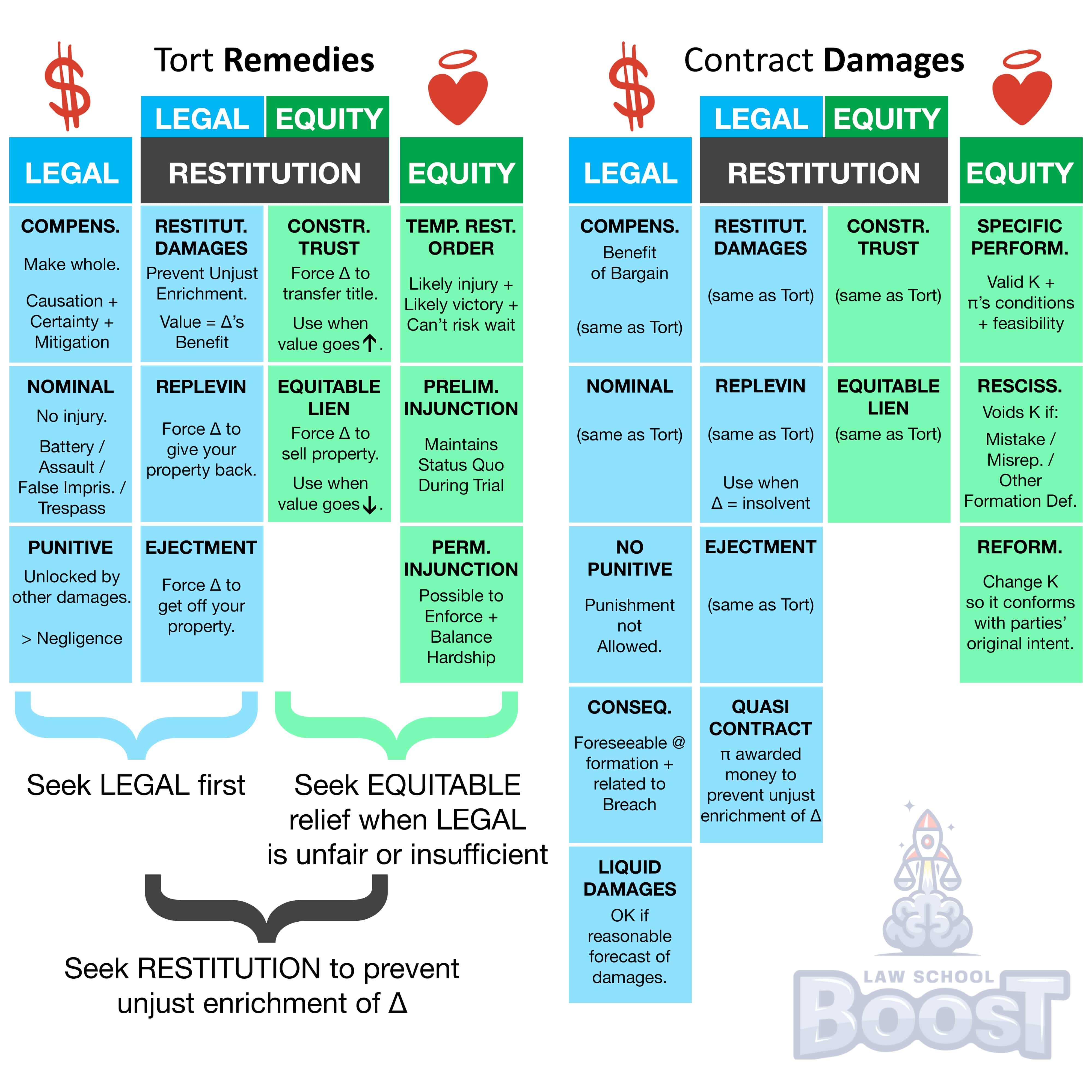🏥
Remedies • Tort - Equitable Restitutionary Remedies
REM#020
Legal Definition
An equitable lien is imposed on improperly acquired property to which the defendant has title. The property is then subject to an immediate court-directed sale, the proceeds of which belong to the plaintiff.
If the proceeds of the sale are less than the fair market value of the property when it was taken, a deficiency judgment will issue for the difference, and may be used to satisfy the debt against the defendant's other assets.
Further, where a thief sells converted property (to which they do not have title) for money (as to which they do obtain title), the injured party may—by tracing and identification—impose an equitable lien on the money or any property purchased with the money.
If the proceeds of the sale are less than the fair market value of the property when it was taken, a deficiency judgment will issue for the difference, and may be used to satisfy the debt against the defendant's other assets.
Further, where a thief sells converted property (to which they do not have title) for money (as to which they do obtain title), the injured party may—by tracing and identification—impose an equitable lien on the money or any property purchased with the money.
Plain English Explanation
Sometimes, a really good thief can somehow get legal ownership of a property that they stole. When this happens, the court can impose an equitable lien on the property, which triggers an immediate sale of the property to someone in the market. All the money received from the sale will go to the plaintiff, who had their property stolen. If the court can't find a buyer to pay the market value for the property, a deficiency judgment will be issued and the defendant will have to pay the rest of the money so the plaintiff gets the market value amount of money. In other words, if the property was worth $100,000 when it was stolen, but only sells for $90,000, there will be a $10,000 deficiency judgment applied to the defendant which acts like a debt that they must pay off. Even if the thief has already sold the property, the court can put the equitable lien on the money they made from the sale or another property they bought with that money.
Hypothetical
Hypo 1: Amy and Jill live in Florida. Amy decides to steal Jill's fancy yacht because she's jealous of Jill's constant Instagram posts while sunbathing on it. One day, while Jill is livestreaming on Instagram about her next boat trip, Amy puts on a self-made captain's hat, hotwires the yacht, and sails it through the Panama Canal and all the way to Hawaii. Result: If Jill doesn't want to deal with the time and cost of replevin to get the boat back from Amy in Hawaii (or even if she wanted to buy a different boat anyway), she can have the court put an equitable lien on the boat. It'll be sold, where it is located, as soon as possible and Jill will get all the profits, which she can spend on any raft, dinghy, or expensive yacht she feels like.
Visual Aids



